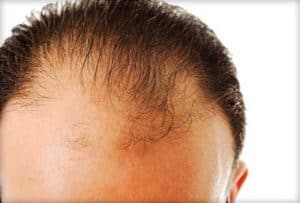Hair Loss and Stem Cell Therapy
 Hair loss can be detrimental to how we feel about ourselves. We have no idea why our hair is suddenly thinner than it was a year ago. Visits to the dermatologist are fruitless and more and more money is being spent just to try to find out why it’s happening.
Hair loss can be detrimental to how we feel about ourselves. We have no idea why our hair is suddenly thinner than it was a year ago. Visits to the dermatologist are fruitless and more and more money is being spent just to try to find out why it’s happening.
There can be more than one cause, and most are preventable or can be reversed. If it’s solely due to genetics then one is faced with getting hair transplants. However, there is a much better solution than the painful and expensive hair transplants. Let’s first go over some of the physiological causes that are treated.
- Hormones: Testosterone conversion to Androsterone causes scalp hair loss. For women this can also cause growth of facial hair. This can be treated by inhibiting the enzyme 5 alpha reductase.
- Thyroid: Hypothyroidism comes with many symptoms, including hair loss. Conventional lab tests just look at TSH and T4 (inactive). At our office we check the full panel which includes T3 (active) and antibodies against the thyroid. We may prescribe active thyroid (T3) which has a more profound affect on the body than “synthroid”. Many people have subclinical thyroid conditions, meaning their labs are normal but they have all the symptoms of hypothyroidism. We still give these patients thyroid and assist the physiological conversion from T4 to T3, while addressing anything that might be causing “thyroid resistance”.
- Malnutrition: In the aging person, the digestive system is working less optimally. This causes malabsorption in which the person is not absorbing their vitamins and minerals. Malnutrition causes multi-system deterioration. By enhancing digestion and nutrient absorption, the vital minerals needed for hair health are available. Unfortunately, this issue is never addressed in conventional medicine and may be a major cause for hair loss which gets missed.
- Genetics: It is said you cannot change your genes. DNA testing and nutrigenetics is becoming more recognized in integrative and alternative medicine. We do genetic testing for our patients to see how well important pathways are working. Pathways that have to do with oxidative stress may be indirectly contributing to hair loss. By assisting these suboptimal genetic pathways, we can reduce the oxidative stress load on the body which prevents many chronic degenerative disease and can also prevent or stop hair loss.
By looking at all these factors, we address the whole body and the patient will enjoy better health. However, If all else fails for the hair loss, stem cell therapy is a viable choice and is much less invasive than a hair transplant. The cost is a third of what it costs to do the transplant. Also, you do not need to keep repeating the stem cell injections. For more information about stem cell therapy and about our seminars click here.
Contact Us for more information.
